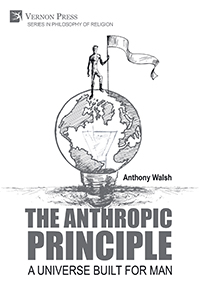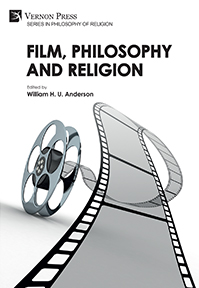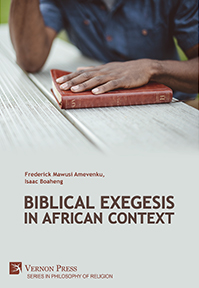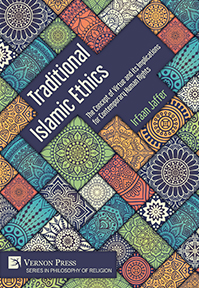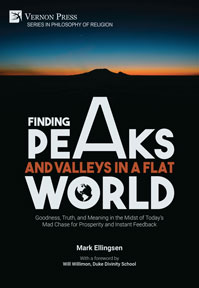Search
Browse
by Publication status
by Subject
Anthropology (26) Art (124) Business and Finance (26) Cognitive Science and Psychology (54) Communication and Journalism (45) Economics (62) Education (66) History (149) Human Geography (22) Interdisciplinary (42) Language and Linguistics (129) Law (16) Music Studies (18) Philosophy (157) Political Science and International Relations (103) Sociology (304) Statistics and Quantitative Methods (20)by Series
Series in Literary Studies (65) Series in Philosophy (59) Series in Education (51) Series in Sociology (42) Series in Politics (32) Series in World History (32) Bridging Languages and Scholarship (31) Series in Language and Linguistics (25) Cognitive Science and Psychology (20) Series in American History (20) Series in Philosophy of Religion (20) Series in Art (19) Critical Perspectives on Social Science (16) Series in Cinema and Culture (16) Curating and Interpreting Culture (15) Series in Critical Media Studies (14) Series on the History of Art (14) Series in Anthropology (13) Series in Business and Finance (13) Economics (13) Series in Music (12) Series in Communication (9) Series in Performing Arts (9) Philosophy of Personalism (8) Series in Law (8) Series in Economic Methodology (7) Series on Climate Change and Society (7) Women's Studies (7) Classics in Economics (6) Series in Economic Development (6) Philosophy of Forgiveness (5) Series in Built Environment (5) Series in Economic History (5) Series in Philosophy of Science (4) Series in Social Equality and Justice (4) Series on the History of Science (4) Serie En Estudios Literarios (3) Serie en Sociología (3) Series in Contemporary History (3) Series in Creative Writing Studies (3) Series in Design (3) The Interdisciplinary Built Environment (3) Serie en Comunicación y Medios (2) Serie en Historia (2) Series in Heritage Studies (2) Series in Innovation Studies (2) Series in Philosophy of Race (2) Serie en Ciencias Políticas (1) Serie en Entorno Construido (1) Serie en Estudios Culturales (1) Serie en Filosofía (1) Serie en Filosofía de la Ciencia (1) Serie en Música (1) Series in Classical Studies (1) Series in Economics of Technological Change (1) Series in Urban Studies (1)by Language
English Spanishby Author
Browsing with filters
The Anthropic Principle: A Universe Built for Man
Anthony Walsh, Boise State University
Availability: In stock
180pp. ¦ $63 £50 €58
The Copernican Principle states that humankind is an insignificant assemblage of chemical scum living on an accidental planet in a suburb of a purposeless universe. Many prominent scientists, including Nobel laureate physicists, have questioned this scurrilous principle, which has led physicists to propose the Anthropic Principle. This principle posits a purposeful link between the structure of the universe and the existence of humankind and its specialness. The numerous features of the universe are so freakishly fine-tuned for the existence of intelligent life that physicists are beginning to come to grips with the notion that our universe is profoundly purposeful and that there is a powerful and incredibly intelligent Mind behind it all.
Film, Philosophy and Religion
Edited by
William H. U. Anderson, Concordia University of Edmonton in Alberta
Availability: In stock
454pp. ¦ $91 £71 €78
Hollywood is a $40 billion annual business, one that is highly influential in culture. If we want to know who we are as individuals and a society, what we believe and what we value, we need to know and understand Hollywood and film. Make no mistake, Hollywood is neither philosophically, politically, nor morally neutral! Many studies demonstrate how movies “affect” us long before we have thought it through. In other words, Hollywood “smuggles” all kinds of ideas into our minds and hearts without us even knowing it. While Hollywood may be the biggest and most influential in the world, this book will demonstrate the growing international influence of film from India (Bollywood), Nigeria (Nollywood), Zimbabwe (Zollywood) and Yesilçam (Turkey). 'Film, Philosophy and Religion' explicitly and implicitly takes a philosophical approach to analyzing film theoretically and methodologically. There are topic and film-specific chapters that take a theological approach, and others that explore ideas like Affect, Axiology, Art Reflecting the Artist and Transcendence (Spirituality) of Film. Hermeneutics also have a central role in the book, including films based on biblical texts that act as interpretations of these texts and fill in the blanks (albeit speculatively by way of script and directors). Chapters also explore the philosophy of aesthetics and film realism which end with theology, while other chapters explore the incompatibility of science with religion, as well as a chapter on the timely topic of rape in Turkish film. The book’s scope goes from the “Horror of Evil in Ridley Scott’s Alien Universe” to “Love Can Thaw a Frozen Heart: The Philosophy of Love in the Frozen Films” (Disney Princess Narratives). This book represents international films and scholars. The diverse perspectives from theist to atheist—and everything in-between—are sure to spark thinking and generate talking points that provide something for everyone in an accessible format. It will be of great interest to university students and professors, scholars, seminaries, and the general public.
Biblical Exegesis in African Context
Frederick Mawusi Amevenku, Stellenbosch University, South Africa
and Isaac Boaheng, University of Free State, South Africa
Availability: In stock
135pp. ¦ $37 £27 €31
‘Biblical Exegesis in African Context’ explores how the Church in Africa can affirm its uniqueness in terms of the African identity and experiences, and at the same time, remain faithful to the gospel message. The volume begins with an explanation of exegesis and hermeneutics, and the agenda for the rest of the book is set. The second chapter deals with textual criticism, which is the task of determining the originality of a biblical text. In chapter three, issues related to the context of the text are considered, after which the volume proceeds to examine the various literary forms present in the Bible— prominent among them being— Narrative, Law, Poetry, Prophecy, Wisdom Literature, Gospels, Acts of the Apostles, Epistles and Revelation. The authors then dedicate the next chapter to discussions on socio-rhetorical interpretation. The final chapters of the book deal with matters solely related to the context of Africa; this part intends to equip readers to be able to interpret the Bible from African cultural perspectives and then apply the gospel message meaningfully to the life of African Christians. Chapter seven deals with the emergence and historical development of African Biblical Studies (ABS), noting its relevance and how Africans can benefit from it. The main contention of the chapter is that Africans will better understand and apply God’s word to their lives if they read the Scriptures in an African way. The volume then explores how African languages can be used to derive the meaning of scripture and apply it to real-life situations. Here, the authors contribute to the development of MTBH by developing a methodological framework for this interpretative tool. The next chapter of the volume deals with mother-tongue theologizing in Ghana. The final chapter considers the legitimacy of female leadership in the Church within the African context through the examination of two Pauline texts. This volume will be of interest to undergraduate and graduate seminary students, students of Biblical Interpretation in religions departments, as well as practicing pastors.
Traditional Islamic Ethics: The Concept of Virtue and its Implications for Contemporary Human Rights
June 2021 / ISBN: 978-1-64889-038-3Availability: In stock
182pp. ¦ $49 £36 €41
"Traditional Islamic Ethics: The Concept of Virtue and its Implications for Contemporary Human Rights" concentrates on the subject of Islam and modernity and Islam and human rights, a topic that has become popular and relevant with the rise of globalization and the interest in Islamic extremism and human rights. This book distinguishes itself by operating within the framework of the traditional school of thought or ‘Islamic Traditionalism’. In doing so, it draws on Islam’s 1400-year-old spiritual and intellectual tradition and its understanding of ethics and virtue, along with truth, justice, freedom, and equality. This book argues that Islam’s pre-modern approach is indispensable in creating an organic and integral human rights model for Muslims. The first section argues that the current understanding and implementation of international human rights needs to be more flexible and inclusive if it truly aims to be universal in scope; this is because ‘The Universal Declaration’ and its offshoots are still underpinned by secular-liberal principles, and therefore, are at odds with other cultural traditions. To this end, this section critically explores popular human rights histories and contemporary ethical theories that attempt to justify human rights. The second section of this book provides a general overview on the subject of ‘Islam and Human Rights’. After explaining some of the main problems, this section examines various solutions offered by Muslim academics and scholars, focusing on four different types of Muslim responses to modernity and human rights: liberal, progressive, traditional, and fundamentalist. It concludes that there are ‘spaces of convergence’ between modern-liberal ethics and traditional Islamic virtue ethics while maintaining that there are also fundamental differences and that these differences should be welcomed by human rights theorists and advocates. The book’s intended audience is primarily post-graduate students and professional academics in the fields of Human Rights, Ethical Philosophy, and Islamic Studies (modern Islamic thought, Sufism, Islamic theology, Islamic Philosophy, and Traditionalism). It will also appeal to anyone interested in the subject of Islam and modernity in general and Islam and human rights in particular.
Finding Peaks and Valleys in a Flat World
Goodness, Truth, and Meaning in the Midst of Today’s Mad Chase for Prosperity and Instant Feedback
Mark Ellingsen, Interdenominational Theological Center
Availability: In stock
90pp. ¦ $29 £22 €25
The flat world of our globalized economic order—with its information technology mandating the need for the labor force to compete globally—has led to turmoil, injustice, and growing unhappiness in our everyday lives. We need a way to find some mountaintops and fulfillment in our flat world, to have a sense that some moments can have eternal significance. Søren Kierkegaard, forerunner of Existentialism, provides us with a vision of life to help us cope and give us joy. Along the way, we’ll see how a lot of his insights connect with cutting-edge findings on brain research about the biological dynamics of joy and fulfillment. Finding Peaks and Valleys in a Flat World will be of interest to undergraduate Philosophy and Religion students as well as Kierkegaard specialists. It will also be a good reference work for people interested in social analyses and theologians of every denominational affiliation.

